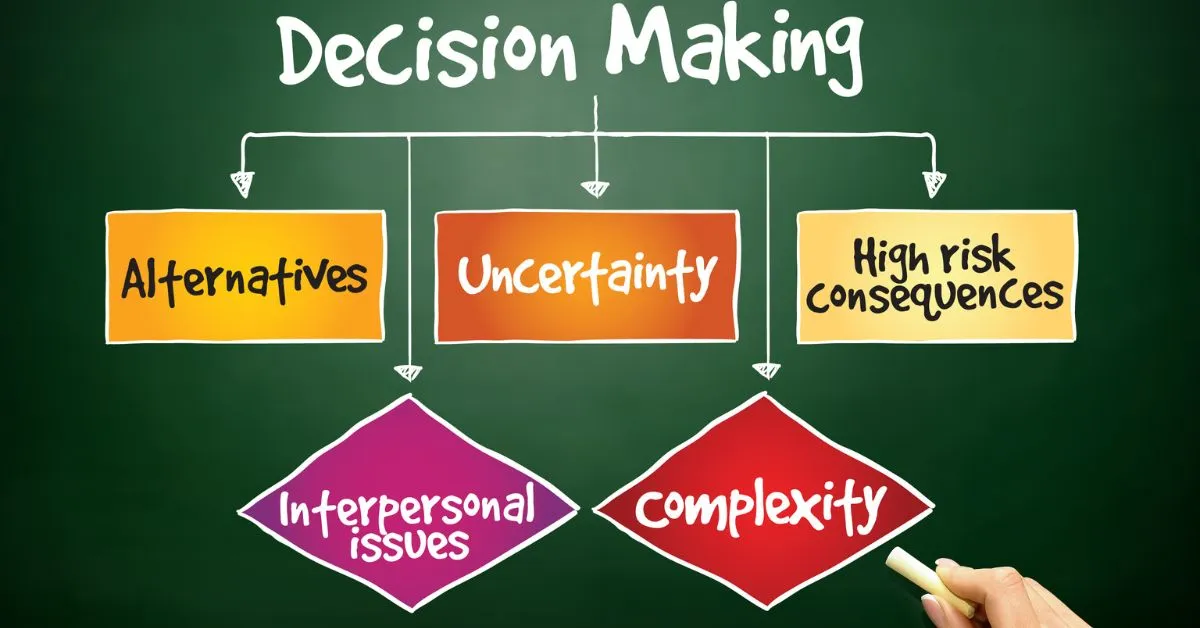


22,Nov 2023
Successful managers possess a unique combination of hard and soft skills that enable them to lead teams, achieve goals, and navigate the ever-changing business landscape. If you aspire to a management position, understanding and developing these essential skills will be crucial for your success. In this blog post, we'll delve into the top skills required for a fulfilling and impactful management career.

Communication is the cornerstone of any successful management endeavour. Students and professionals pursuing business management studies must be masters of both verbal and written communication. They know the art of articulating complex ideas clearly and concisely, tailoring their message to their audience's level of understanding. They should be active listeners who carefully absorb information and respond thoughtfully. Aspirants should show willingness towards open communication within team, encourage dialogue, feedback, and collaboration. Not this much, with good communication skills can lead to beneficial negotiations with allied or competitive business house’s managers that might yield strategic business advantage to the business of the organisation and expand its branding among customer base.

In business environment, especially in context to corporate, new professionals are often faced with complex challenges and dilemmas. Strategic thinking enables them to analyse situations from multiple perspectives, identify potential obstacles, and develop effective solutions. Problem-solving skills, coupled with strategic thinking, allows them to navigate challenges, overcome setbacks, and lead their teams towards achieving their objectives.

Leadership is the ability to inspire, motivate, and guide others towards a common goal. To become a successful managers you don’t need to be a boss; rather you should represent yourself as leader who inspire its team members to perform at their best. A good manager recognize and appreciate individual contributions, foster a sense of ownership, and create a positive and empowering work environment. By motivating team members, you can drive productivity, innovation, and overall success. You should also innovative also to generate new ideas or improve existing ones that can add value or solve problems.

In a business or organisational environment you interact with a diverse range of individuals, each with their unique personalities, perspectives, and working styles. Interpersonal skills enable you to build strong relationships, foster trust, and effectively manage conflict. Emotional intelligence, the ability to understand and manage one's own emotions as well as the emotions of others, is crucial for navigating challenging situations, empathizing with colleagues, and resolving conflicts constructively.

In working environment you often juggle multiple projects, deadlines, and responsibilities. Organizational skills enable you to prioritize tasks, allocate resources effectively, and meet deadlines. Time and project management skills empower aspirants with abilities to plan, execute, monitor, control, and close projects within scope, budget, quality, and time constraints without compromising with the track and productivity.

B-professionals constantly make decisions, from minor day-to-day choices to strategic long-term decisions for maintaining the organisation’s brand without any loss in the customer database. Effective decision-making requires gathering information, analysing options, and weighing potential risks and rewards. Adaptability, the ability to adjust to changing circumstances and embrace new ideas, is crucial to navigate through the dynamic business environment.

While some management roles may require specialized technical knowledge, a general understanding of the business and the organization's operations is essential for effective decision-making and strategic planning. You should stay up-to-date on industry trends, emerging technologies, and best practices to stay ahead of the curve and lead their teams towards success. You must possess necessary skills to understand the financial statements, and able to track the performance of your organization against its competitors. You also need to be aware of the latest local and global industry regulations and regularly update your seniors and peers through proper documentation or presentation.

The business world is constantly evolving, and successful professionals are committed to continuous learning and development. They seek out new knowledge and skills, attend training programs, and participate in professional development opportunities to stay relevant and adapt to the changing demands of their roles.

Passion and enthusiasm for one's work are contagious qualities that can inspire and motivate teams. Emerging professionals who are genuinely passionate about their work and the goals they are pursuing can create a positive and energized work environment, leading to increased productivity, innovation, and overall success.

Mentors provide guidance and support to help others grow and develop. As a mentor, you can share your knowledge and experience with team members, and can ask for feedback and encouragement. Mentors can also help others to identify their strengths and weaknesses, and to develop strategies for achieving their goals.
A successful professional is the one who remains resilient in the face of challenges and setbacks. You need to be able to bounce back from failures, and maintain a positive attitude even when things are tough. Side by side, you should need to remain humble and open to feedback. Always show willing attitude to admit when you are wrong, and remain open to learn from mistakes. Also, you need to be honest and ethical with others. Set a high standard for team members and other employees so that they always remain willing to hold themselves accountable for their actions.
Students and professionals undergoing business management studies with aim to a successful and prosperous career must possess a combination of hard and soft skills to be a good team member, effectively lead teams, achieve goals, and navigate the ever-changing business landscape. These essential skills include effective communication, strategic thinking, strong leadership, interpersonal skills, organizational skills, decision-making, commercial awareness, continuous learning, passion, mentorship, resilience, and integrity.